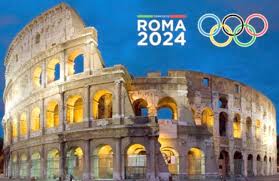By David Owen
December 29 – The famous San Siro stadium in Milan, designated host of this season’s UEFA Champions League final, has been selected along with 10 other venues to stage matches in the 2024 Olympic Games football tournament if Rome succeeds in beating its three rivals.
Also proposed is the new Juventus Stadium in Turin, the Stadio Artemio Franchi in Florence and Stadio San Paolo in Naples. Both men’s and women’s finals will be played at the Olympic Stadium in Rome. The remaining stadia selected are as follows: the Bentegoda Stadium in Verona; Friuli Stadium in Udine; Luigi Ferraris Stadium in Genoa; Dall’Ara Stadium in Bologna; St Nicholas Stadium in Bari; and Barbera Stadium in Palermo on the island of Sicily.
While most events at an Olympic Games are based in a single city, it has become a tradition for the football competition to be spread around the host country to ensure that as many people as possible feel involved. “It’s a very important selection: 11 cities, 11 stadiums,” said Giovanni Malagò, President of the Italian Olympic Committee. “It is from here that Rome’s bid becomes the candidacy of the country.”
Rome is up against Budapest, Los Angeles and Paris in the contest for the right to stage the 2024 Olympics. The International Olympic Committee will decide the winner in 2017 in Lima, the Peruvian capital.
Rome 2024 explained that group stage matches would be played in Turin, Genoa, Udine, Verona, Bologna, Florence, Bari and Palermo, with quarter-finals and semi-finals taking place at the 80,000-capacity San Siro, also known as the Giuseppe Meazza, and the San Paolo.
When Rome hosted the Olympics in 1960, the football venue in the Italian capital was the Stadio Flaminio. Both the Artemio Franchi and the San Paolo hosted games in that competition more than half a century ago, however.
Matches in Florence included the host nation’s come-from-behind 3-1 victory over Brazil, which included a goal by the great Gianni Rivera. Naples, though, was the scene of Italy’s luckless elimination at the hands of Yugoslavia, the eventual gold medal winners.
With the semi-final finishing 1-1 after extra time, Yugoslavia won through to the gold medal match via the drawing of lots. While penalty shootouts were not entirely unknown at that time, they were not officially adopted by the International Football Association Board (IFAB) until 1970.
Contact the writer of this story at moc.l1745178304labto1745178304ofdlr1745178304owedi1745178304sni@n1745178304ewo.d1745178304ivad1745178304

